|
It’s a little difficult for me to answer this question because I’ve been creating every day since Christmas 2011. And played organ long before that too. At first, I wrote blog posts, then created videos, then courses for my subscribers. Later I started to compose, improvise and draw. I also started creating podcasts. Well, maybe not every day. Sometimes Ausra and I produce a few of the posts and podcast episodes back to back and schedule them to be published in advance. Our subscribers receive them every day but we don’t have to actually record them every day. On the days I don’t record anything, I try to at least create Pinky and Spiky comic strip and write a blog post, and of course play the organ. My recent memory of not creating almost anything perhaps was in London when Ausra and I played organ duet recital at St Paul’s Cathedral. I didn’t take my laptop with me to that trip, prepared a few blog posts in advance for our subscribers and had only my pocket notebook and a black pen. I didn’t want to miss creating during this trip so I at least drew a comic strip once a day. To find a day of not creating, I actually should dig deeper into my memory. Maybe on the days when I was sick, maybe when I had a lot of errands to run. I don’t remember exactly when such rare occasions happened but I do remember the feeling from these days. I would be grumpy, even angry with family members and I definitely felt that something important was missing in my day. Even now I don’t necessarily compose music every day. This bothers me. I don’t have any excuses for this, of course. Like many people, I still hesitate. And when I don’t compose, I don’t feel whole. I feel like I’m not living up to my potential. I feel like the days go by too easily. I should be more tired before going to bed. Like an empty cup, to be refilled during the night. Do you have this feeling when you don’t create? Sure, physically and emotionally your day might be exhausting, you might get a lot of things done and be spent like a sponge at the end of the day, but if you don’t have anything to show for yourself and others what you have created, how does it make you feel? I’m pretty sure not everybody feels this emptiness. People who have silenced this childish voice of curiosity long time ago and buried it underneath all the mundane worries and fears might not even remember how it sounds. They might look at the sunset or sunrise and don’t feel the awe at the beauty of nature. So naturally they don’t feel any urge to create and express this beauty which is all around them and actually inside them. To them the world is not a happy place, a place for sorrows, worries and fears. They don’t have anything to hope for. But even for them the miracle can happen. I believe everyone is capable of seeing the beauty of the world and expressing it in art. Sometimes all it takes is one life-changing moment or event and the world will never be the same for them. But if you are a creator, if you feel that deep down you have something to say and offer to the world and you’re not doing it, how does it make you feel? Or if you are doing the bare minimum and you know you could create more, do you feel like cheating? Because I do. And I hate this feeling. That’s what helped me to pick up that pocket notebook and a pen and create a comic strip about Pinky, Spiky and the dancing shoes yesterday. This blog/podcast is supported by Total Organist - the most comprehensive organ training program online. It has hundreds of courses, coaching and practice materials for every area of organ playing, thousands of instructional videos and PDF's. You will NOT find more value anywhere else online...
Total Organist helps you to master any piece, perfect your technique, develop your sight-reading skills, and improvise or compose your own music and much much more... Sign up and begin your training today. And of course, you will get the 1st month free too. You can cancel anytime. Check it out here Here's what one of our students is saying: I Joined TO 3 weeks ago! I Started sight reading course. I like TO and I'm sure to obtain a lot of improvements from this opportunity. I will let you know more in the future. (Ferruccio) Would you like to receive the same or even better results that Ferruccio is getting? If so, join 80+ other Total Organist students here.
Comments
Today I am going to talk about things that we loved doing back when we were kids like six years old and why it is important for us today as adults. You see when a child like six years old was very fond let’s say of drawing right? I for example loved drawing and right up until maybe seventh or eighth grade I participated with my parents in summer camps where the students also drew and I was required to also draw together with them because my both parents at that time were both teachers of art. So I also was surrounded by art at home and I was basically creating, drawing all the time.
My favorite drawing theme was probably horses and airplanes I think too. So I remember that up until maybe thirteen years old. And then I stopped drawing somehow maybe because I had to choose music more, maybe because nobody else from my class drew at that time so basically I wanted to belong, I didn’t want to stand out and I forgot about drawing for a long time. But only three years ago approximately I started to feel the urge of drawing. And even before that I was very envious of artists, of visual artists who expressed their creativity in a visual way. Either in photography or creating pictures, paintings, drawings, sculptures. Anything that is visual was still very appealing to me although I didn’t practice this for many years, let’s say from thirteen years old right up until mayben thirty-eight or thirty-nine years old. You see how many years have passed. Many, many decades and I still didn’t forget about that. And I remember starting drawing little by little after reading Linda Berris book called “Syllabus.” And this book inspired me to start drawing comics. My very first public drawing was created on the occasion of international Churlonis organ and piano competition. I was sitting in the church I remember back in 2015 in September and I started to draw monsters and they were asking many things, saying many things I was hearing in people's music when they played the organ upstairs in the balcony. And it was sort of my commentary in terms of comics. I didn’t know how to draw organ or people at the time and still don’t know very well. But it seemed to me like monsters was something like what I could draw easily. And I started drawing those monsters and sharing them on Facebook. I was so scared at that time and actually was thrilled when organist Hans-Ola Ericsson liked one of my drawings of monsters with the commentary. And I thought maybe it’s not a mortal sin I’m doing right now and maybe I can continue if such a great organist clicked “like” on that drawing. So I continued drawing up until this day. Illustrations, comics, and right now Pinky and Spiky comics. It’s really fascinating to me. But why am I talking about this, right? Because the love of drawing followed me from the time I was six years old and I came back to this love just quite recently. Three years ago. Which means that for you if you look at your childhood back when you were six, seven, eight years old maybe up until eleven, twelve, or even thirteen years old. You will no doubt discover something very curious about yourself. What you loved to do. Maybe you not only drew, maybe you danced, maybe you created music, maybe you wrote poetry. Those activities generally are very applicable for majority of children, right? And most of the children laugh much more than that. So adults laugh five times a day on average, and children laugh three hundred times a day on average and on average we can safely say that children are happier and we can safely say that laughing more would lead us to happiness. But not only laughing probably and I think a big part of being a child is immersing yourself in these activities that we love, right? In my case it was drawing and not only drawing, I loved to conduct and pretend I am a conductor and I took my Mom’s brush and I was conducting Mozart’s 40th Symphony in G Minor and Eine Kleine Nachtmusik. That was my favorite too. So music was also part of my childhood too. And definitely I am a musician right now so I never stopped doing this. But drawing I did stop and it was like some part of me was missing and when recently I came back to this activity I felt much more united in myself. I cannot say that everything is whole right now in my being but much more united that before, before I took up drawing. So if you look at your activities when you were a child and see if you could discover some missing part of you that you are longing to do this right now. Maybe you don’t have the skill, maybe you don’t have the time, maybe you don’t have the tools, right?. It doesn’t matter, right? You can come back to this activity today. However childish it appears to you or others, it doesn’t matter how others react. I think this having hobby today is very beneficial to your well-being as a person, as a whole. And your spiritual well-being too. So I challenge everyone who is listening and who will be listening to this in the future to think about the childhood memories you did and took up those activities. Maybe you could experiment with those activities today. Little by little come back to that feeling of happiness you had as a child. I hope you will create something and share it with the world because when you create miracles happen. I’m so delighted to be able to talk to you about something that is very interesting: creation of new art forms, of new compositions. I hope you had the chance to create too.
First thing in the morning today, I edited my newest piece, I dedicated for Göran Grahn, organist and friend from Sweden. It’s called Kyrie Orbis Factor, based on a Gregorian chant tune. And then, of course, I posted it online, shared it with the world, and then I created a drawing, a comic about Pinky and Spiky. I think that they were looking for strawberries and cream. But, their pets were hiding strawberries and cream from them, so, they were rather angry. So, I again shared it with you earlier in the day, and I live streamed my improvisation from the graduation ceremony today, which is also a form of creation, right? So, the day for me was quite creative, and I hope that you can create, too, in either text, pictures, audio, or video, and share it with the world. And don’t stop there, because tomorrow, you will have a chance to create, share, and repeat again. Thanks, guys, I hope this was useful to you. And let’s create something. And remember, when you create, miracles happen. Today I am going to talk about how can you become creative. This is a common question we all hear right? We all know that creativity is important, that creativity has amazing benefits to our life but the question is how to be more creative and my answer is very simple. You have to practice creativity every day. It’s just like cleaning your teeth or brushing your teeth or practicing any type of activity that you want to improve. So when you want to improve creativity you have to understand that the creative side of your brain is like a muscle. You have to basically exercise this muscle every day a little bit. You don’t have to spend hours and hours doing that but not doing it, it will sort of become weaker.
So I suggest and I practice this, spending some time doing some creative activity, either writing something or playing something or painting or drawing something and then sharing it with the world. It’s really beneficial to get positive feedback. When you share something with the world you suddenly start to realize the impact your art is having, right? Because of this creative activity of sharing. So don’t keep your creativity under the table because it’s quite selfish then. I know a lot of people are afraid of sharing because their art or any type of creativity is not perfect, right? But we have to leave that perfectionism at home and understand that no one can achieve perfection, right? We can strive for that but really I think what’s important is to practice daily sharing or not necessarily daily but you have to do it regularly, right? So talking about how you become creative it’s just a matter of regular, persistent and connected practice, right? Regular means that you set up a time to do it every day or every week, twice a week, how much time you have to devote to that I don’t know. At least fifteen minutes a day. This seems to be a good activity. For example you can create a drawing in fifteen minutes in your small pocket notebook, right? Some kind of picture with pencil or pen. It doesn’t have to be large, right? And in fifteen minutes it’s plenty of time. It’s like a sketch, right? So don’t try to be perfect at first, right? Try to do it and the process itself I think will lead you to perfection later on because it will take years and years to achieve that perfection. So you have to understand one more thing about it. Think about what kind of activity draws you the most. Either you are a visual person or an aural person, right? What excites you the most? What kind of activity could you do? Could you do some visual activity or could you do some creative activity with sound. That would be music, right? Or you could write something with works like poetry or creative writing or story telling or some kind of essay, right? That could be done. Other people like to invent something with your hands, right? You don’t have to do it with pictures or words or sound but you could do it with your hands too. This is also creative. So I think if you feel the urge to become a little bit more creative every day this is a good thing. You just have to try something today for fifteen minutes. And I can challenge you, right? Today after you’re done watching this video why don’t you create something in fifteen minutes, right? And then share it with the world, wherever you are, wherever your future fans are, right? On which platform you’re using. It could be anywhere. So you could create a piece of music, right? That would be wonderful. Of course in fifteen minutes you will not be able to create any advanced musical piece but you could improvise, right? Record yourself or live stream it and that would be perfectly valid way of creative activity, right? You could draw a sketch as I mentioned before, you could write a poem in fifteen minutes, right? You could build something in fifteen minutes, maybe not entire thing but maybe a fragment of it, right? If you have an idea of building something you could imagine what would be the first step and do the first step today, right? And tomorrow you will take the second step, right? So that’s a good way of thinking of I think. Try to do this before you end this day, before you go to bed, that would be wonderful and share it with the world because when you create miracles happen. Vidas: Hi guys, this is Vidas.
Ausra: And Ausra. V: Let’s start Episode 204 of #AskVidasAndAusra podcast. This question was sent by Kae, who is helping us to transcribe some of the podcasts into text and make them into blog posts. So, she wrote a question: Labas Vidai ir Aušra! She knows a little Lithuanian. So this means, “Hi Vidas and Ausra!” She continues: I was inspired by AVA192 to make a video of my newest creation--a lyric song, which meant I would have to sing (*shudder*)--and post it on YouTube for the whole world to see! I had a couple thoughts about it that I'll share with you: I try to make my lyrics as non-specific as possible, probably for 2 reasons. 1) I want them to be universally accessible. But 2) I think I also try to hide my personal life, even though songwriting involves putting it on display for the whole world--so I make lyrics that don't give away specific details. It's a weird balance I have to find, isn't it? ...Or do I? Another thing I was thinking about is: I want to encourage people to use and change and improve any music I create. I don't believe in copyrighting the kind of stuff I create, which is mostly keyboard music. What do you think about that? (I arrived at this conclusion after I discovered a beautiful piano concerto by Władysław Żeleński, and the library in Poland that is sitting on the sheet music wouldn't let me even borrow it for my school's concerto competition. Only one or two people have ever recorded it, and I suspect only those people have ever been granted access to copies of the music. How do they expect to honor Żeleński, their own country, or music itself, if they treat it like it's not music and leave it to gather dust behind red tape? No wonder this composer is so obscure! I would be so mad if a library hoarded up my copyrighted music after my death and refused to share it.) And she gives the video link, which you can also click and view: https://youtu.be/x8W8njPFT7Y And she writes further: Thank you for everything you do. The world is really a better place, with people like you. I can't wait to meet you in person this summer! Love, Kae So, Ausra, Kae is coming to Vilnius on the occasion of the song festival we’ll have in July! Thousands or even tens of thousands of singers will come, who have Lithuanian background, at least, from all over the world; and sing at this huge festivity, because this year the entire Baltic States--Lithuania, Latvia, and Estonia--celebrate the centennial of their independence! A: Yes, it will be very exciting, and we are looking forward to see Kae in Lithuania. I think we will have a great experience, and I hope she will like it here. V: There is so much to see and enjoy, I think. Each Baltic country has their own singing traditions; and together, we are quite unique in the entire world with these song festivities--massive festivals where thousands of people gather every four years, I think. So wonderful. So, Kae started to compose music... A: Yes, it’s wonderful; I think it’s wonderful. V: And not only compose, which a lot of people do, but she started to share her music. A: Yes. V: Which only a few people do. A: And it’s wonderful that she creates her own texts. V: Right. A: Lyrics... V: Lyrics. A: Because I remember the day when I was back in high school, I loved poetry. V: Uh-huh? A: So I what I would do is, I would pick up some kind of lyrics, and I would sit down at the piano, and would play whatever accompaniment, you know, just based on basic chords; and would sing those poems. And it was fun. I had a great time. V: Did you used to write down those lyrics in your own notebooks? A: Yes. V: Did you keep them? A: Yes, I still have them. There are like, 4 volumes of them! V: Do you look at them now, sometimes? A: No, because you know, actually, I don’t have so much time--and actually because I memorized almost all of them, and I could still recite maybe half of them from memory. V: Wow...You have excellent memory! A: Well...it’s not so good as it was, you know, 20 years ago...But still, still, it’s okay! V: Is it a useful skill, to have good memory? A: Yes, it’s a very useful skill. V: To remember everything? A: But sometimes not, because you would like to forget some things. V: To remember good things, and forget bad things? A: That’s right. V: Excellent. So, back to Kae. She created the lyrics non-specific, right? And generally accessible, to be universal, so that other people could relate to them, right?--not about her own life. In part, also, she wanted to protect her personal life. A: Mhm, yes. V: Right? Because if she puts something on YouTube, then thousands of people might see and hear and comment, and those comments might hurt. (Of course, you’re always free to disable those comments, if you don’t think that they matter. They can vent somewhere else.) A: That’s true. V: But I don’t know...What would you recommend Kae--to create something very personal, like, very very vulnerable, you know--about her own feelings or experiences, or something more universal? A: Well, you could look at two sides to this issue. Because on one hand, I understand why she wants to create more universal lyrics that it would be accessible to everybody and understandable to everybody, and she would not expose herself so much to the public. V: Mhmm. A: And it’s okay. But on the other hand, I think that if you would create more personal things, they might excite other people more… V: Personal? A: Yes, personal. V: Mhmm. Because they understand that you’re being vulnerable. A: And they might--your lyrics might touch their hearts more. V: Exactly. In your experience from reading poetry, do poets sometimes write personal-related poems, or are more of them general, universal? A: Um...they do it both ways. But yes, that poetry which shows the inner feelings excites more. V: Mhm. A: Because, look, we seem like each of us is unique--and yes, each of us is unique--but I think we all share the same feelings; and you know, everybody always has certain good experience and bad experience. You know, many of us experience love, and… V: Mhmm? A: And other things. So… V: In order to protect herself, she could simply publish them under a pseudonym. A: Yes, that would be a great idea. That’s what many poets did in their lifetime. Or writers. V: Of course, if she publishes a video, then her face is visible, right? But she could point the camera away from her face, right? A: Yes, if you would do, like, a profile picture...then you wouldn’t be so well recognized. V: Or maybe just looking at the score, facing the score, so that people will see the score. Or hands. A: True, true, true, yes. Yes. So there is always a way to make it work. V: And I’m looking now at the YouTube channel by Kae, and she has quite a few pieces arranged and performed--from West Side Story...an Estonian folk dance arranged for 2 pianos...right? Even some Polish composer, Leopold Godowsky. This is interesting; I think she could continue. Do you think, Ausra, that YouTube today is the best place to share your creativity, or not? A: Well, it’s a good place to share it, because so many people use it... V: Mhm. A: And you would have a bit larger auditorium. But also, I would share it on Musicoin. V: The audio file? A: Yes. Because you would get back more out of Musicoin, I would say. V: Especially if the platform grows, then the value of that coin grows, too. Then your entire revenue also grows. And put it on Steemit, too, because they have a DSound application which accepts audio files; or the video version of Steemit is DTube. It’s like YouTube, but on the Steemit blockchain. So you get also some revenue out of that when someone uploads your content. A: Yeah, so you have a few options; so do it. V: And it’s only the beginning of blockchain-based social networks and content monetization techniques; so...I’m sure there will be many others, and maybe better platforms to post your content in the future. So always be on the lookout for revolutions in this field, because blockchain is the future, I think, of media, and people should not neglect this, right? Because it directly rewards creators. So...and...Kae doesn’t believe in copyright. Do you believe in copyright, Ausra? A: Yes and no. Because in some cases it gets frustrating, like Kae describes about Władysław Żeleński. V: Mhm. A: But on the other hand, you have to protect your work somehow. V: Mhmm. That’s the thing--now, you can have not public domain music, but a Creative Commons License, which means you are free to share and distribute, and only you have to give credit to the person who created it. But it’s free, right, to do anything you want with it. But the thing with Creative Commons is that you still cannot really monetize it, right? You can’t live off your art. So there has to be some other way to monetize your brain, so to say. And one of those ways is probably blockchain-based, right, that we mentioned earlier. So copyright means that if somebody picks up that you have performed, let’s say, Władysław Żeleński’s concerto--so then, if this is copyrighted, a portion of your revenue will go to the copyright owner of that work. Maybe relatives of Władysław Żeleński. Or...I don’t know if the library has copyright. Probably not. But maybe the publisher has. I don’t know. So, in part, yes: people have to be rewarded for their work; that’s why we have copyright for 50 or 75 years after the composer’s death. But that’s a sometimes tricky situation; because you don’t always know if the person has performed or not--right, Ausra? A: Yes, that’s true. V: But now, blockchain-based platforms for copyrighted content are also being created, so people should check out them soon, also. It’s a new paradigm now, with blockchain--they can automatize everything and make it so easy to check and track, it’s like distributed a digital ledger, where everything you put on that ledger stays forever; and you can’t say, “No, no, I didn’t perform the concerto by Władysław Żeleński!” because the ledger says you did, you know? A: Huh. Yes--no way to hide! V: Mhm, yeah. Excellent. I just would add--I believe that creators should get paid for their work. And in what form or what shape, it depends. A: But yes, you also need to share your work; because otherwise it will just die. V: Exactly. If you hide--if you always protect it under copyright--nobody will notice it. So it’s a balance. Maybe when you are just starting, you could share them more freely; and when you are more advanced and mature, you could start to, I don’t know, hold back a little. A: Yes; that, I think, is a good suggestion. V: Right. And it’s always good to monetize your creativity, and control it--not give away copyright to other entities, like institutions or companies, because they will abuse your rights for sure. A: Yes, that’s true. V: Okay! Thank you guys. Keep creating, keep sharing your music--and not only music, you can do anything you want today. And keep sending us your wonderful questions, we love helping you grow. And remember, when you practice… A: Miracles happen. By Vidas Pinkevicius (get free updates of new posts here)
The current system of music education worldwide is build upon the notion of recreating someone's compositions. It may be performance of music repertoire, writing down dictations, and even memorizing musical themes from pieces of the masters old and new. Do this often and long enough and you'll create an army of educated concert goers who appreciate good music. Well, maybe some performers too, if we're lucky. But who's gonna create creators? And I'm not buying the explanation that composition is only for professional composers. Creators create. That's what they do, regardless if they have the diploma for that or not. And actually humans are different from the animal kingdom primarily in this characteristic - we are capable of creating. It seems to me we're not focusing upon creating an environment and culture which rewards brave creators and leaders, people who care enough to say, "Here, I made this. What do you think?" In a world of tomorrow where human connection, creativity and innovation will be all we have left for us and all the good jobs will be taken over by the machines and artificial intelligence, this is not only the wise choice, it's the ONLY choice we'got. So, are you creating or are you consuming music? By Ausra Motuzaite-Pinkeviciene (get free updates of new posts here)
Can you find yourself in organ practice? Can you find out what kind of person you are when you're practicing? Can you figure out what your purpose is when you're playing this instrument? Yes, you can. But this is stilll reactive mode of thinking. Reactive to the situation, reactive to other people, reactive to yourself. This way you're only acting on someone else's agenda. Good or bad. Doesn't matter. It's not yours. A more fullfiling way of living is to be proactive. You can create yourself in organ practice. Become the person you want to be around with. Become the person whom we would miss if you were gone. By Vidas Pinkevicius (get free updates of new posts here)
When two or more people meet and start to talk about others who are not in the room, it's gossip. It may seem fun for a while but in reality, it only satisfies our inner dragons which trie to stop us from doing the work we were put on this earth to do. After 15 minutes of such conversation we feel drained, waisted, exhausted, and knowing that those 15 minutes might have been used to create something which might change people for the better. Run from these people. Run to the organ bench. PS If you do need to talk to these people, talk about them. By Vidas Pinkevicius (get free updates of new posts here)
Today we remember Saint Cecilia, the Patron saint of all church musicians. For this occasion a year ago, I played an improvisation recital based on the poem of 17th century English poet John Dryden which starts like this "From harmony, from Heav'nly harmony this universal frame began". Thank you all who wrote such nice comments about it. It means a lot to me: "Love the mixture and nazard/sesquialtera/tirce/larigot like mutations. You are extremely gifted, love your improvisations!" (MaximumHarp) "What a nice tribute to St.Cecelia, and inspiration to such as I!! Thank you." (Gordon) "So beautiful. Wow." (John) "Vidas, though I partially heard you, you did a good job!" (Daniel) "Just Great. I wish I were there. I am sure Saint Cecilia was very pleased hearing this 😊 Thank you for the recording. Warm greetings from Cracow" (Mariusz) "Wonderful video, Vidas! You are such an inspiration to me! I dream of being a great organist like you!!!" (Chris) Watch this video (the text of the poem) Most importantly, I hope you will do something with this video. Experiment with these modes yourself and the instrument will teach you the rest. By Ausra Motuzaite-Pinkeviciene (get free updates of new posts here)
What's your worst nightmare as an organist? Last Saturday was supposed to be a regular organ improvisation recital for Vidas at Vilnius University St. John's church. He's done over 30 of them over the last 3 years. No big deal. This time he was ready to play improvisations "Circle of Life" based on his dad's paintings with multimedia projector showing the video with the slides on the screen which he prepared as a movie. The night before he showed me some excerpts of the video and I found it beautiful. Imagine my surprise when I saw him at my parent's place and he told me his recital was being transferred to another place! You got it right. The representative of the University called him in the morning of the recital and asked him what he suggest they do because by accident they scheduled another event at the church at the similar hour. I think it was some kind of miscommunication or a simple typo in the scheduling. At any rate they suggested Vidas play the same recital at one of the halls of the University which houses an elegant one-manual organ with pedals. From a largest pipe-organ in Lithuania to 11 stop instrument! Who cares? And of course the audience had to be redirected to a new place. Another option would be to cancel the recital but then they would have to refund some tickets which were sold in advance not to mention the blow to the reputation of the organizers. So Vidas thought that since he is an improviser and not wanting to cause anyone a problem, he should should be able to play an interesting one-hour-long recital on this elegant little organ. And he did. In the words of a colleague who attended this event, "he managed to squeeze everything out of this instrument and more." But of course it all depends on your taste. For me, it took a few pieces of music and paintings to get into this sort trance but once you're there, I guess it works. I also appreciated the synchrony of music and painting very much but wish the first full picture of each painting would have stayed for a longer period of time. Here's the video he made afterwards with paintings (click CC for subtitles in English) and without paintings (camera facing him). What would be the worst nightmare to one organist, was no big deal to Vidas after all. One more reason to learn to improvise, isn't? |
DON'T MISS A THING! FREE UPDATES BY EMAIL.Thank you!You have successfully joined our subscriber list.  Photo by Edgaras Kurauskas Photo by Edgaras Kurauskas
Authors
Drs. Vidas Pinkevicius and Ausra Motuzaite-Pinkeviciene Organists of Vilnius University , creators of Secrets of Organ Playing. Our Hauptwerk Setup:
Categories
All
Archives
April 2024
|
This site participates in the Amazon, Thomann and other affiliate programs, the proceeds of which keep it free for anyone to read.
Copyright © 2011-2024 by Vidas Pinkevicius and Ausra Motuzaite-Pinkeviciene.
Terms of Service and Privacy Policy
Copyright © 2011-2024 by Vidas Pinkevicius and Ausra Motuzaite-Pinkeviciene.
Terms of Service and Privacy Policy

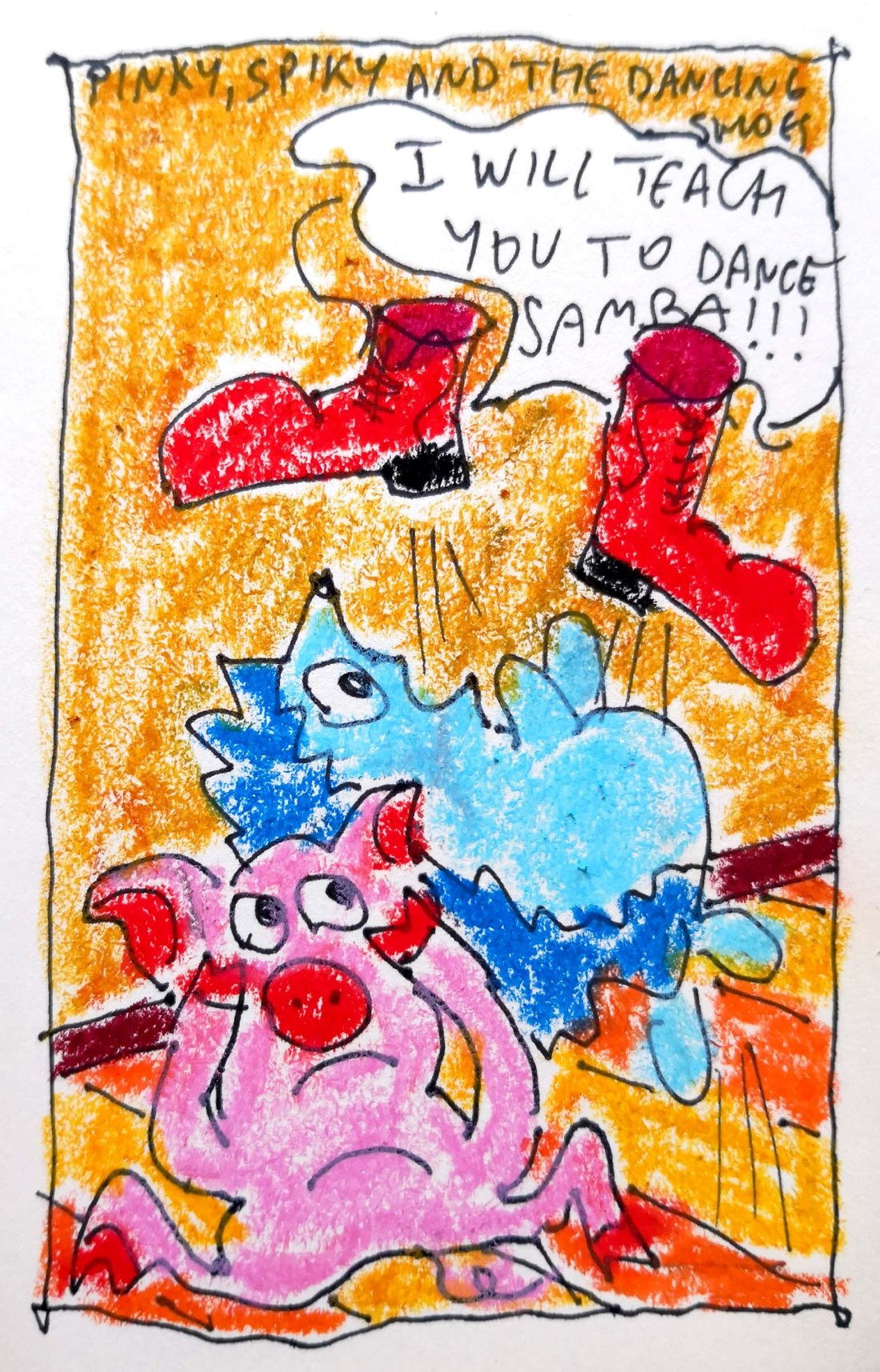
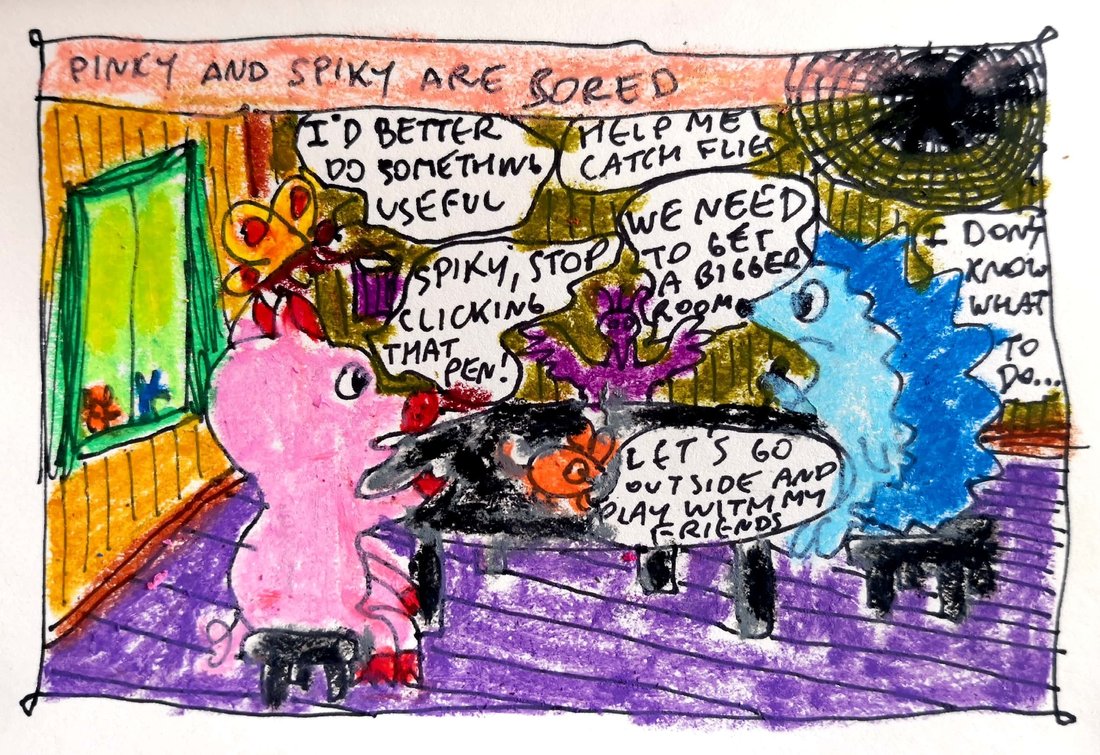
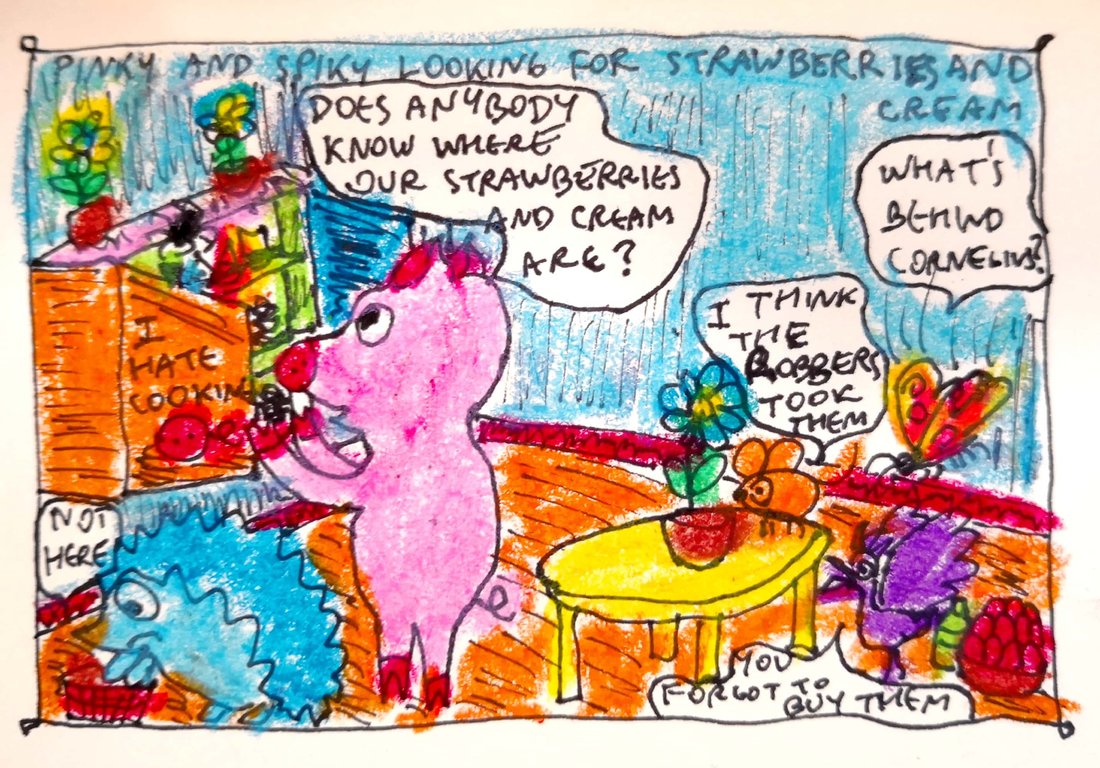
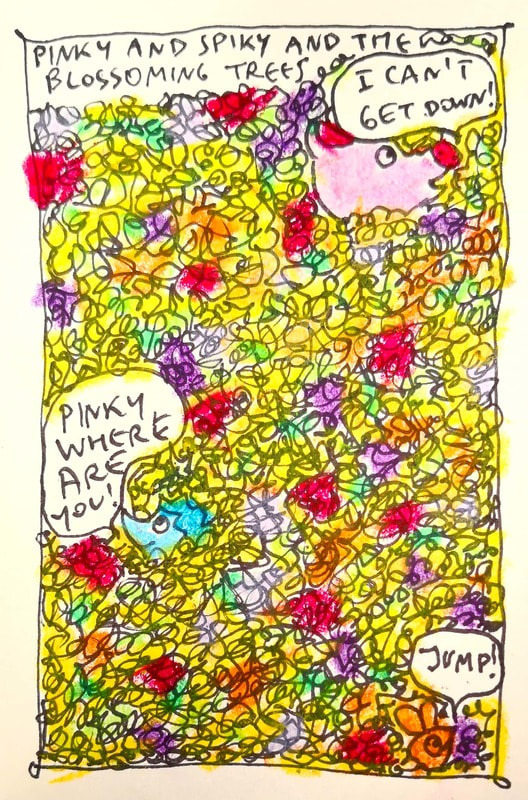
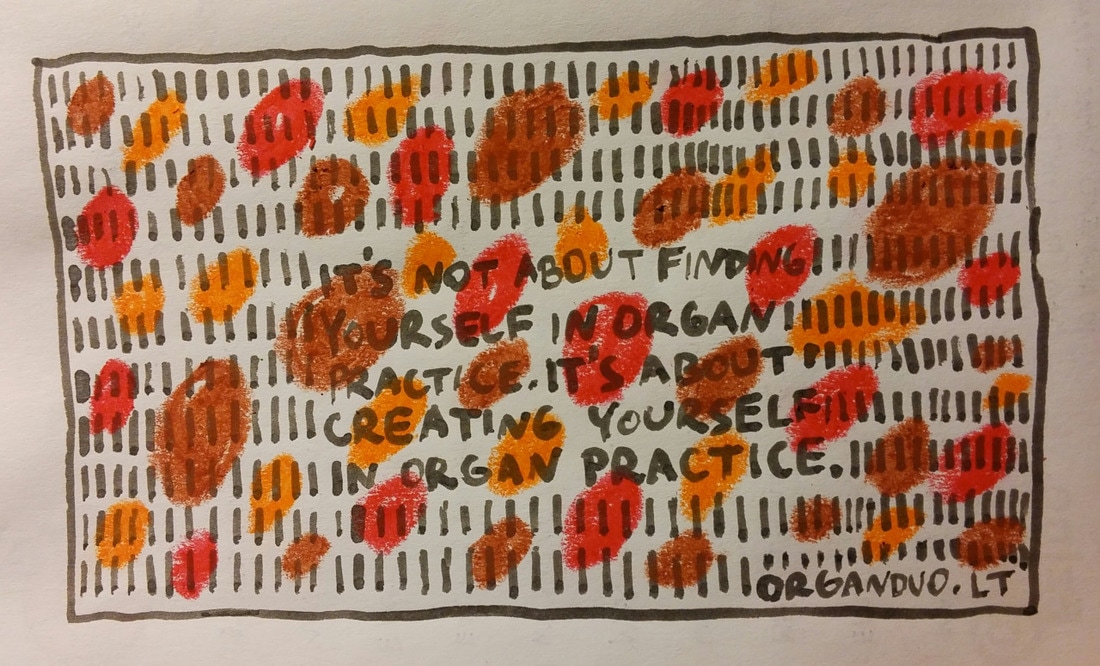
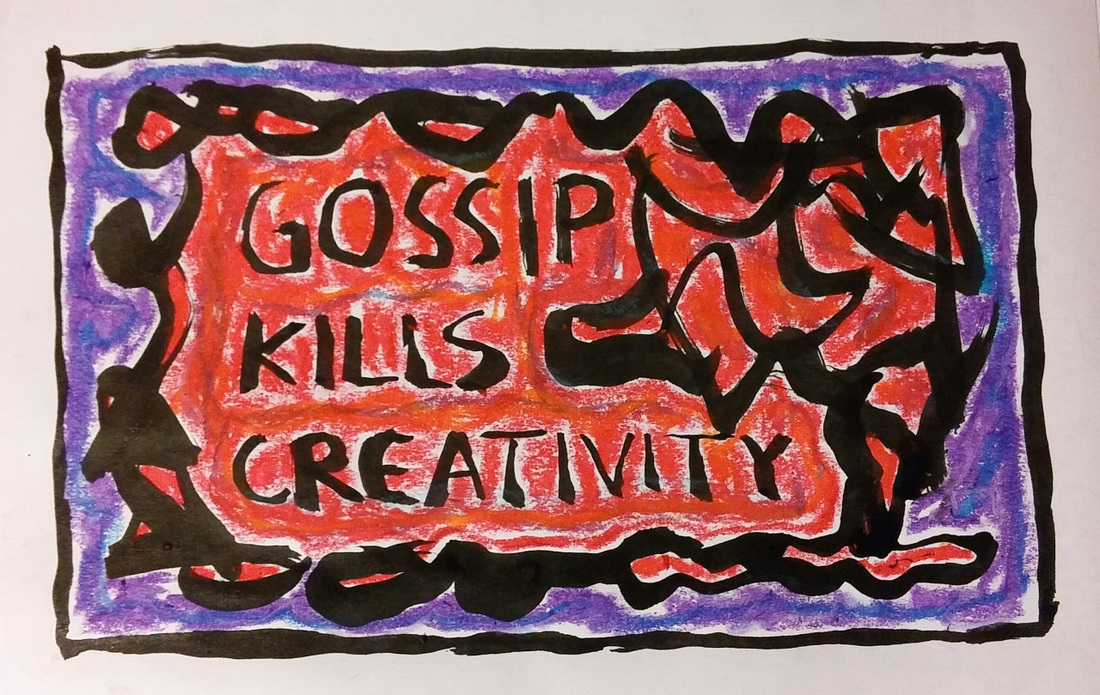
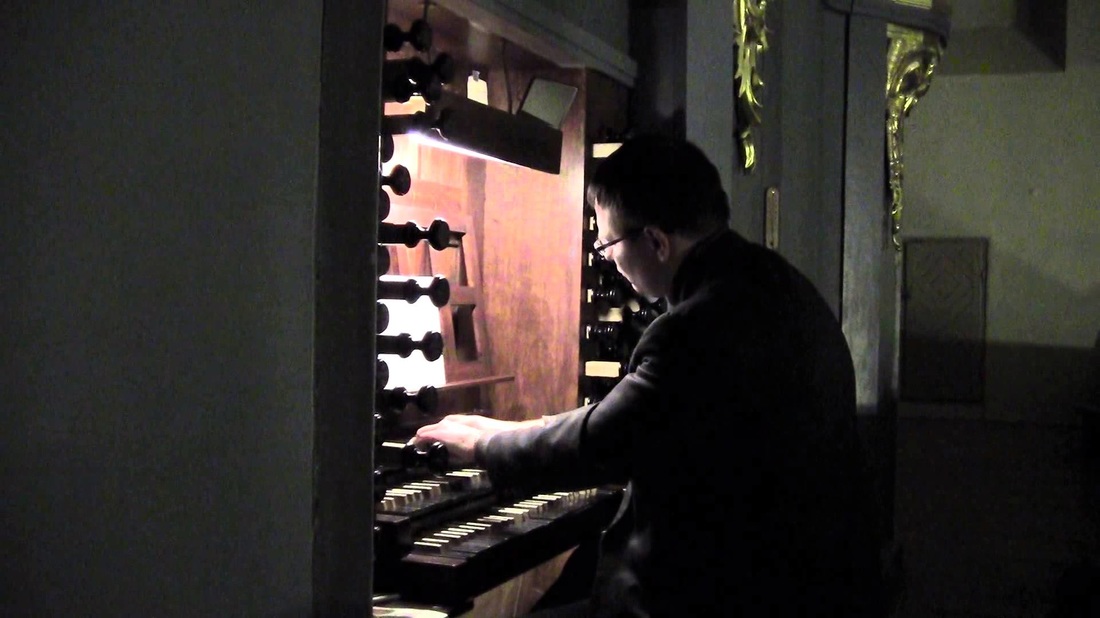
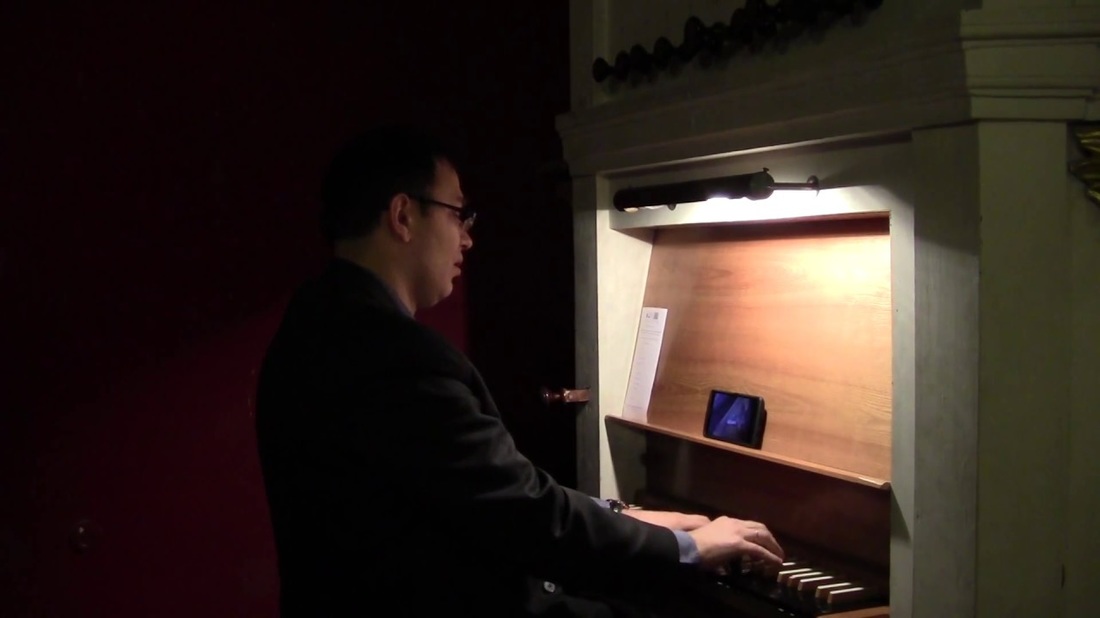



 RSS Feed
RSS Feed